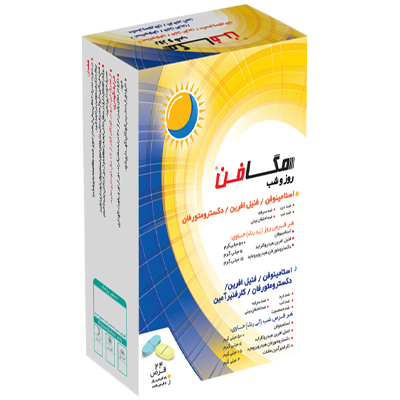Major depression or clinical depression (Major Depressive Disorder or MDD) is a common mental disorder that, according to global statistics, affects about 3 to 7 percent of the population. In another article about Types of depression We have explained it in detail. In this article, we will examine the causes, symptoms, diagnosis, and treatment of major depression.
Causes of Major Depression
The causes of major depression are diverse and may include genetic, environmental, individual, and personality factors. Some of the contributing factors to the development of this disorder include:
The role of genetic factors in major depression
Genetic factors play an important role in the development of major depression. According to research and clinical studies, people who have close relatives with major depression are more likely to develop this disorder. Genetic studies have also shown that genes that control the levels of serotonin, norepinephrine, and dopamine in the brain may play a role in the development of major depression.
In addition, genes involved in controlling the stress response and regulating stress hormones such as cortisol may also be important in the development of this disorder. However, it should be noted that genetic factors are only one of the factors that contribute to the development of major depression, and environmental and individual factors also play an important role in determining this disorder.
The role of environmental factors in major depression
Environmental factors also play an important role in the development of major depression. Some environmental factors include:
- Life events: Events such as job loss, moving to a new environment, loss of a loved one, divorce, and financial difficulties
- Social conditions: Social conditions such as isolation, feelings of loneliness, forgetfulness from friends or family, lack of support from those around them, and lack of social interaction
- Drug use: Substance abuse such as alcohol and drugs
- Type of thinking: People who tend to think negatively and have difficulty letting go of their negative attitudes are more likely to develop major depression. Some people are predisposed to major depression because of their personality tendencies, which include a tendency toward self-punishment, spontaneity, and suicidality.
- Physical activity: Irregular physical activity and lack of exercise
- Physical conditions: Physical conditions such as chronic illnesses, chronic pain, lack of sleep, and eating disorders. Some people with major depression have physical illnesses that reduce their energy and mood. Diseases such as cancer, multiple sclerosis, heart disease, etc. People with chemical imbalances in their brains are more likely to develop major depression. Disturbances in the levels of serotonin, noradrenaline, and dopamine may cause this disorder.
The role of hormonal changes in major depression
Some hormonal changes that may cause major depression include:
- Thyroid hormone changes: Underactive thyroid (hypothyroidism) can cause major depression. Changes in thyroid hormone levels can also contribute to major depression during pregnancy and after childbirth.
- Changes in sex hormones: Changes in sex hormone levels, such as increased estrogen levels in women during premenstrual syndrome (PMS), can trigger major depression. Changes in sex hormone levels during pregnancy and postpartum can also trigger major depression.
- Changes in the hormone cortisol: Changes in levels of the hormone cortisol can cause major depression. Increased levels of cortisol in the body in response to stress can cause depression.
- Growth hormone changes: Changes in growth hormone levels may also cause major depression.
It should be noted that hormonal changes are only one of the factors that play a role in the occurrence of major depression, and genetic and environmental factors also play an important role in determining this disorder.

Symptoms of major depression
Symptoms of major depression include physical symptoms, cognitive symptoms, and behavioral symptoms, which can be listed as follows:
- Physical symptoms: Loss of appetite, weight loss, fatigue, loss of libido, body aches, headaches, sleep disturbances, and excessive sleepiness
- Cognitive symptoms: Unhappiness, distrust, worry, repetitive thinking, negative thoughts, forgetfulness, decreased attention and concentration, disruption in daily tasks, feelings of worthlessness, and decreased self-confidence.
- Behavioral symptoms: Isolation, shortness of breath, boredom, lack of enthusiasm, abandonment of daily tasks and hobbies, laziness, suicide, disruption in social relationships, violent behavior, and self-harm
It should be noted that the symptoms of major depression may not be the same for everyone, and some people may only experience some of these symptoms. Also, the symptoms of major depression may be accompanied by other symptoms such as anxiety disorders, mood disorders, and obsessive-compulsive disorder.
Diagnosis of major depression
Diagnosing major depression requires a specialized diagnosis by a physician, psychiatrist, or psychologist using the following methods: Drug therapy or psychotherapy To diagnose this disorder, the doctor may use tools such as clinical interviews, questionnaires, and Types of depression tests Use anxiety questionnaires and other psychological assessment tools.
The diagnosis of major depression is made based on the signs and symptoms that the person has and their medical and family history. In general, to be diagnosed with major depression, there must be at least two consecutive weeks of symptoms of depression, including decreased mood, increased anxiety, decreased motivation, decreased appetite, sleep disturbance, and other symptoms discussed in depression assessment questionnaires.
Other symptoms and conditions that may accompany the symptoms of major depression should also be considered, such as anxiety disorders, obsessive-compulsive disorders, mood disorders, and physical conditions related to underlying medical conditions or medication use. Because major depression can be accompanied by other mental and physical disorders, your doctor may need to perform other diagnostic tests, such as blood tests and brain imaging, to make an accurate diagnosis.
In these interviews and questionnaires, the doctor discusses the person's symptoms, experiences, and thoughts about themselves and others, as well as problems in relationships, work, and family life, and then determines the diagnosis based on this information.

Treatment of major depression
Treatment for major depression includes both pharmacological and psychotherapy approaches. Here are some of the treatment methods for this disorder:
- Antidepressants: Antidepressants are commonly used to reduce the symptoms of depression. These medications include antidepressants, antioxidants, antianxiety drugs, and antipsychotics. Antidepressants, for example, help increase serotonin levels in the brain and reduce symptoms of depression. One of the best medications recommended for the treatment of major depression is Quemind It is.

- Cognitive behavioral therapy: Cognitive behavioral therapy, considered one of the most effective psychotherapy methods for this disorder, is considered and used to treat major depression. This therapy works on the principle that negative thoughts and behaviors can contribute to a person's depression and discomfort. By practicing and changing these patterns, people can better understand themselves and experience improvement in their condition.
- Metacognitive therapy: Metacognitive therapy, as a new treatment method for major depression, helps people to confront and change their negative thoughts and feelings. Based on an in-depth analysis of a person's thoughts and feelings, this therapy helps them gain more control over these thoughts and feelings.
- Psychological treatment: Psychological therapy, as an effective treatment for major depression, helps people confront and change their negative thoughts and feelings. Based on an in-depth analysis of a person's thoughts and feelings, this therapy helps them gain more control over these thoughts and feelings and experience an overall improvement in their mental state.
- Electroconvulsive therapy: In some cases, electroconvulsive therapy (ECT) may also be used to treat major depression. In this method, high-voltage electricity is sent to a person's brain, which can cause changes in brain activity and brain hormone levels, helping to reduce symptoms of depression.
It is important for anyone experiencing major depression to consult with their doctor to determine the appropriate treatment. It is also best to focus on a healthy lifestyle, such as regular exercise, a healthy diet, adequate sleep, and stress reduction, in addition to medication or psychotherapy.
It is important to note that you should strictly avoid taking medications on your own and be sure to contact a doctor specializing in any field to improve any issues that arise.
Conclusion
Major depressive disorder, or MDD, is a severe mental disorder characterized by symptoms such as feelings of deep sadness and hopelessness, decreased interest in daily activities, changes in appetite and sleep, chronic fatigue, decreased concentration, and negative thoughts about oneself or life. The diagnosis of this condition is made by a psychiatrist or mental health professional, usually based on clinical criteria and a careful assessment of symptoms.
Treatment includes a combination of antidepressant medications, psychotherapy, and lifestyle changes such as physical activity, healthy eating, and stress management. Receiving social support and professional counseling play an important role in the recovery of patients with major depression, and early referral to a specialist can help reduce the severity of symptoms and increase quality of life.





